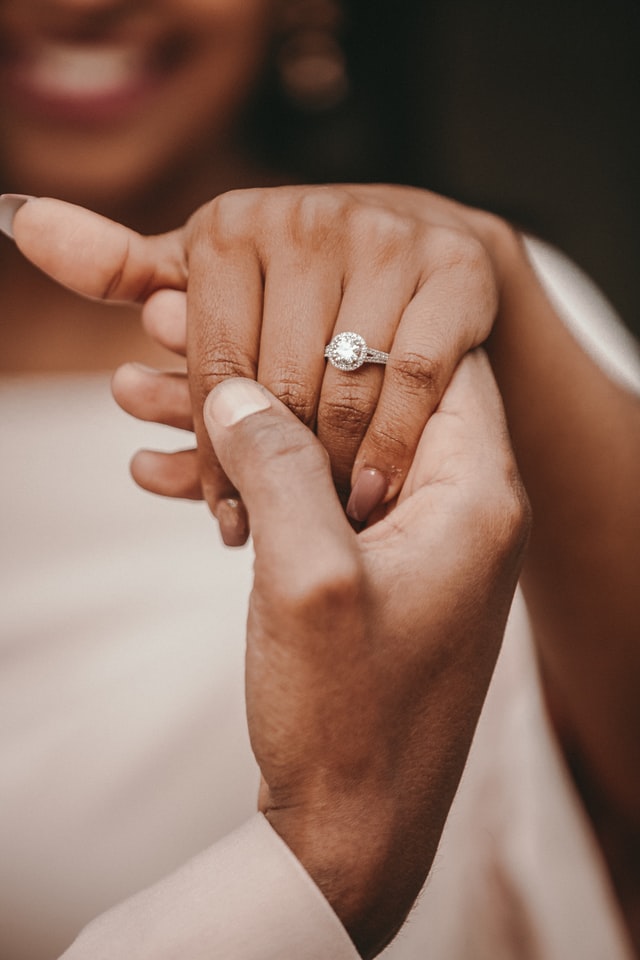Babies were born, divorce papers were drawn and swiping right was no longer fun.
“My mom would love to meet you,” gushed 32-year-old Sarvesh* scanning the sea of faces at his sangeet. He was first set up with Nikita in February last year, just before the world was slapped with the news of a mysterious fast-spreading infection. For the rest of 2020, he and Nikita stayed in touch over video chats and masked meetings. And here I was, in December 2021, basking in my matchmaker glory and meeting both sides of the family at their wedding.
To say the last two years have been different is an understatement. If modern love wasn’t complex enough, just when you thought you’d adjusted to the new normal, we have a new variant looming over our heads. Even today, the pandemic continues to give, take, exhaust but also effuse learnings, with more feelings than a Drake single. Emails start with ‘I hope you and your loved ones are safe’, and common sentiment varies from dread and anxiety to the relief of working from home and introspectiveness. With a collective existential crisis at hand, everyone’s personal life is up for intense self-dissection, the kind with forceps. As matchmakers for global Indians for over a decade, here’s what we saw:
1. For better or worse
Every couple’s relationship was tested – primarily whether it could sink or sail in this challenging time. You may have questioned your marriage (I know I did), seen couples split up after 17 years of marriage and kids and heard of exes who sought each other (again) for comfort. I even received wedding favours from a 45-year-old perennial bachelor – now married to someone he didn’t even know three months ago. The pandemic paved the way for hard conversations – those that could no longer be swept under the carpet because there was nowhere to really go, in addition to the fear of losing time. This domino effect accelerated every stage of relationships: Single people envied the committed; the committed worried about when they could get married; and couples were strained about future events, like, say, planning kids.
Many single people still live with their families, so it was interesting to see Indians redefine the concept of personal space in crowded cities.
2. Decline of the f***boi
I heard this great line on a dating podcast recently – if the ‘Me Too’ movement was a concussion for f***bois, Covid-19 made sure they wouldn’t make a comeback. The keenness to hook-up slowly faded away and unnecessarily risqué unless you were both exclusive. When 35-year-old Dhruv* was holed up in his Delhi apartment in the first wave, his real estate agent scheduled a meeting with the potential next tenant. A handsome expat journalist sauntered in. While he eventually didn’t take the apartment, he found Dhruv on Instagram and flirtatiously slid into his DMs. A few hours later, he came back to the house. Alone. Even a year later, between living between India and Europe, it’s been more than just sex – they’re still in touch, exchanging PG 13 photos, with talk of giving this a real shot.
3. Dating without digital noise
With the toxic hustle culture slowing down (what’s the point of working 14 hours a day if you’re not going to live tomorrow?), every human being has too much headspace to question everything. Are you even seeking a relationship? What kind, and why? While offline dating services like ours [Sirf Coffee] have harped about qualitative dating, major dating app players witnessed a new disruption – resistance to mindless swiping and chatting with strangers. Apps were compelled to initiate new features like video calling and ‘date from home’ strategies.
For 32-year-old fashion publicist Denise*, the lockdown meandered the course of her personal life altogether. In June 2019, she had met Amit*, a filmmaker, on a “very average date” at a dive bar in Bandra, Mumbai. Eight months along, they were meeting more often than usual, but with a state-issued lockdown, Denise would now just pop over at his house, knowing that Amit was isolated, cautious, and lived only two roads away. “We talked a lot – much more than we would’ve if we were dating in non-Covid times,” she says. With a slow work schedule and the flexibility to log in from anywhere, they spent a week WFH at his apartment, also catching up for meals or coffee in the course of the day. “Being in a closed space lets us gauge each other much better; you get a clearer sense of someone’s personal habits and lifestyle too.” And that kids, is how they got engaged two weeks ago.
With the toxic hustle culture slowing down (what’s the point of working 14 hours a day if you’re not going to live tomorrow?), every human being has too much headspace to question everything.
4. Craving connection
The biggest epiphany of all – people craved the ‘real deal’ (read authentic connection) when it came to any relationship. With time, someone they could hug, (exclusively) kiss and look forward to video chatting with. Thoughtful, profound conversation was peeling a deeper layer of intimacy without physical touch. Some of our clients, also poster kids for workaholism, reeled for familial support connections they had never nurtured earlier. Swanky sea-facing city apartments were suddenly abandoned to move back home with family, even if it meant going to a Tier-2 city for a short while. Former television anchor 49-year-old Ankita’s relationship suffered with social distance – she and her boyfriend both lived with their elderly parents. In a heightened sense of emotion, she asked if they should move in together. Spoiler alert: It did not end well. Many single people still live with their families, so it was interesting to see Indians redefine the concept of personal space in crowded cities. Second dates had to happen discreetly, either at parking podiums, open parks, promenades or building terraces. You wouldn’t really show up at someone’s house unless you felt safe enough to.
5. Video dates
via GIPHY
In line with government regulations, we started setting up virtual dates. While some of our clients began whining about Zoom fatigue, I’d explain how video calling has triggered intentional dating. Even if it’s virtual, you’re still expected to show up as you would on a date and woo someone – unless your impressionable personality surpasses the fact that you thought you could arrive in pyjamas. Dating has often been a filler for our social calendars – heading to that new bar you’ve been meaning to check out, doing something on an empty weekday and meeting a new person. Without your usual raucous Saturday night or physical distractions like the bartender, music, ambience etc., video dates changed the game. So if on a video call, you couldn’t hold each other’s attention for over 20 minutes, no matter how attractive your date was, it was highly unlikely that you’d reach out again.
Like a time loop that’s more twisted than the finale of Succession, Covid has compelled us all to change. While most of my requests from clients remain the same, there’s also a focus on the little things: Someone supportive. Easy going. Calm. A partner who “feels like home”. Good sense of humour – just in case we’re all under house arrest again. The everlasting truth of our core human needs remains: whether you’re single and looking or not, we don’t need a Netflix subscription or the Cleo bag for true happiness. At the heart of it all, we will (always) need each other.
*All names have been changed for anonymity. This feature was published in The Established.


